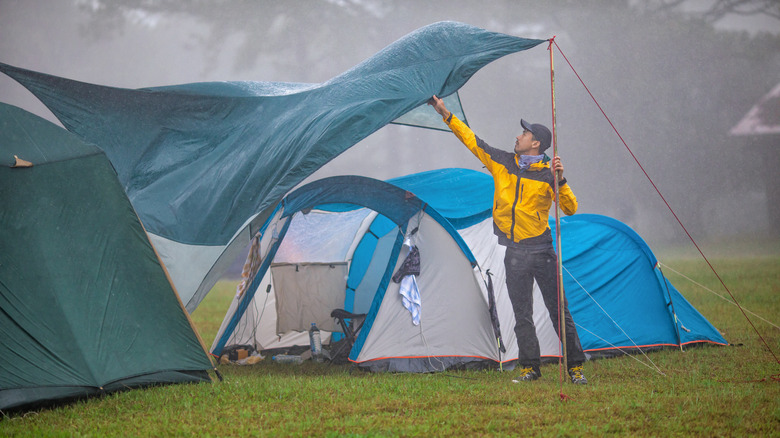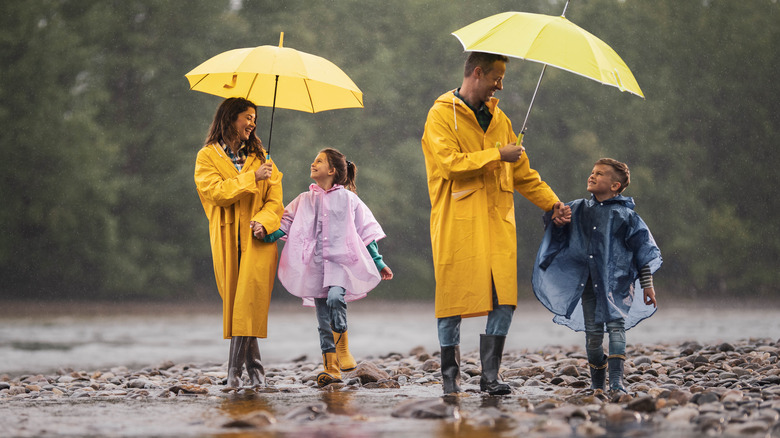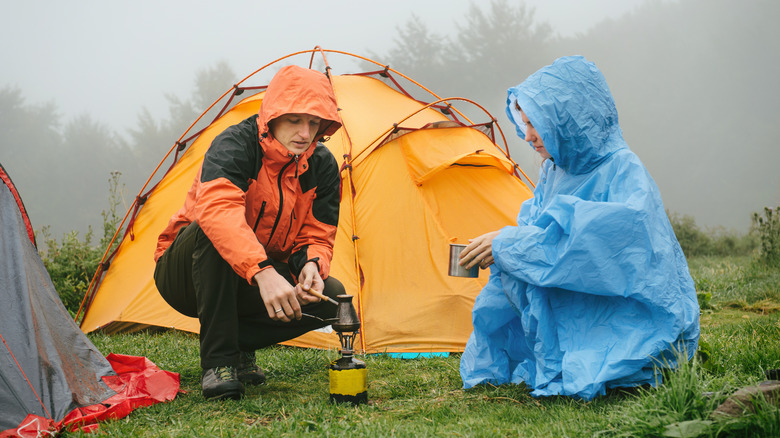Travel Guides Outdoor Adventures Camping
Laura Jones
You’ve meticulously planned every detail of your camping trip, from finding the perfect spot by the river to selecting the tastiest marshmallows for your nighttime s’mores tradition. But the wilderness, for all its tranquility, can sometimes be a tempestuous host. Of all the potential surprises during camping, sudden bad weather often tops the list.
Dealing with unexpected rain showers, gusty winds, or a dramatic drop in temperature can be a daunting task when you’re far from the creature comforts of home. However, with adequate preparation, and a dash of optimism, you can face any challenging weather and maybe even enjoy it.
The first and most obvious thing to do is to check the weather before you go. However, many of us have our vacations planned months in advance — and if you want to snag one of the best campsites, you need to — so changing plans often isn’t an option. But if you know what kind of weather to expect, you can be better prepared.
Camp wisely

pixfly/Shutterstock
Bad weather should always be on your mind when choosing a campground. Your riverside campsite might look picture-perfect, but camping near a water source isn’t a good idea if it rains heavily. No one wants the river flowing through their tent. Try to pitch your tent on higher ground if rain is a concern. However, if you think high winds might also come along to spoil your fun, make sure your spot is sheltered — but not by huge trees, as branches can easily fall during windy weather (or any weather, really, so trees are a no-go).
Next, you’re going to need the right tent. Buy a tent with taped seams, a waterproof outer layer, and a hydrostatic head range of over 3,000, says Hiking and Fishing. Look for a tent with strong pegs, poles, and guylines to make sure it’s going to stay grounded even in the windiest conditions. Always do a practice run with your tent before you go out into the wilderness and check for rips or holes. Practicing putting up your tent is also a good idea so you can do it quickly in bad weather.
Several posters in the r/camping forum on Reddit recommend getting a tarpaulin that you can put over your tent and extend outside, even over a bench or table, so you have more dry space to live in. You can also leave wet shoes and clothes outside under the tarpaulin rather than having them littering the floor of your tent.
Pack smart

Skynesher/Getty Images
Even if the forecast is showing you clear skies and ideal 75-degree temperatures, it’s always wise to pack as though Mother Nature is going to throw down at any moment. As they say, there’s no bad weather, only bad clothing, so let’s start there. Every camper should have a waterproof jacket with them, but consider picking up a pair of waterproof pants and some gumboots. Even if it rains, you’ll be able to get outside and stay dry. And finally, bring lots of clothes, so if you do get wet, you won’t have to spend the rest of the day shivering in your tent.
Dry bags are useful for keeping your gear safe from the rain, but they can be expensive. Lots of campers in the r/CampingandHiking forum on Reddit recommend using trash bags for lining your backpack. Ziploc bags are also great for small items. You’ll also want to pack some indoor activities to do. Cards, Uno, board games, books, coloring books … anything portable that will keep adults and kids occupied for a few hours.

